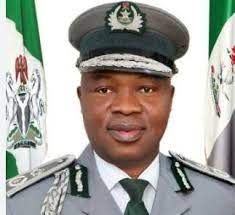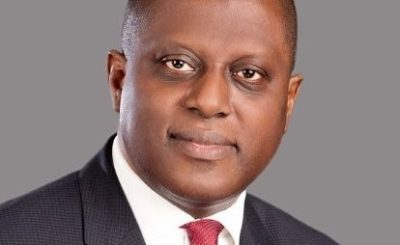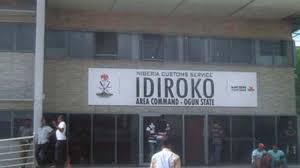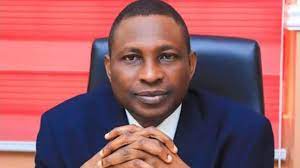By Stephen Ubanna
When Godwin Obaseki, an Invest Banker and People’s democratic governor of the south-south state of Edo raised alarm that the President Muhammadu Buhari, a retired army General, of the ruling All Progressive Congress, APC, will throw the country into a deepening debt profile of between N15 trn and N32trn by the end of 2023, he came under severe attack from different government quarters.
Hajia Zainab Ahmed, the minister of Finance, Budget and National Planning and Godwin Emefiele, the governor of the Nigerian Central Bank were said to have taken up, accusing him of misleading Nigerians. He had said that the during the first term of the Buhari Administration, the Transition Committee which he had set up to facilitate the take off the new Administration had accused the then President Goodluck Jonathan Administration in 2015, of leaving the country with an unpaid of debt of N50billion. The APC , Chieftains had Lambasted the PDP government of having mismanaged the Nigerian economy.
The Edo state governor may have gotten a premonition that the the Katsina state born Nigerian President is working on the National Assembly to give approval for the government both at the Federal and state levels, to secure loans to provide needed critical infrastructure in the country. He may have had his way as the Lawan Ahmad led Senate has given the nod to both the Federal and state governments to borrow $1.5 billion and $995million external loans each.

In justifying the approval for the foreign loan for the 36 states of the Federation, the Senate Committee on Local and Foreign debt Headed by Cliford Ordia, in its report had said that the $995 million recommended for the states which had been approved by the Lawmakers is meant for Agricultural Mchanisation across the 774 Local Government Areas across the country. The Committee had said the $1.5 billion foreign loan recommended for the Federal government which was also approved for the Lawmakers will be used to fund critical infrastructure in the aftermath of the Asian country of China emerged coronavirus, popular, COVID 19.
In requesting the Senate approval to seek for the foreign Loans, the Nigerian President may have told the Lawmakers that it will be facilitated by the World Bank, International Monetary Fund, IMF, African Development Bank Group, AfDB and the Brazil Export and import Bank.
The reasons that was said to have been provided by the government for asking for the the loans both at the Federal and state levels may have sounded very convincing that the Ordia led Committee has no option but to recommend to the House that the request should be approved. Hajia Ahmed may have told the Committee members at their initial meeting to give more insight about the country’s Foreign and Local debts and the additional Loans being requested that it is still within the country’s sustainable limit.
Aware that that he Senate given the nod to the Federal government to go ahead and borrow the $1.5 billion external loan may have informed why the government has concluded plans to embark on the multi-million dollar project to equip with facilities including drugs 200 Primary Healthcare Centres and the all the 104 Unity Schools across the country .
Sale Mamman, minister of Power, who may have opened up on the Federal government planned projects, was said to have also disclosed in his recent tweets that the government also plans to invest on the mini-grid project . The mini-grid project, which is to be undertaken by the ministry of Power, he had said, is designed ‘’to provided solar-powered streetlights to the host Communities of the healthcare Centres and within the environment of the schools’’.
The Power minister disclosed that the decision to invest on the People-oriented projects was taken at the Federal Executive Concil, FEC, basically to revolutionalise and ease the learning process in the Unity Schools and to facilitate an uninterrupted health –care services to the rural Communities across the country.
The recent attacks in schools in Kaduna, Zamfara , Niger, and Katsina, the retired army General’s home state, where hundreds of student were kidnapped by the Bandits, with threat of killing them in , if their demands were not met may have encouraged the Buhari led APC, government to consider the street lightening project in order to enhance the security arrangements around the schools.
He had said that the intention of the Buhari Administration is to achieve 30% renewable energy sources by 2030. The worry of many is that Buhari is running the country on borrowed loans which calls to question what the revenue being generated by the Nigerian National Petroleum Corporation , NNPC, in the sales of the country’s Crude in the International Oil market, Federal Inland Revenue Service, FIRS, and the Nigerian Customs service, NCS, are being used for all these years. Take for instance, this 2021, the Senate has approved a N1.6 trn revenue target for the Hameed Ali, a retired army colonel led, NCS.
The minister of Finance, Budget and National Planning , had made Nigerians to believe that that it is the revenue generated by these agencies that are shared at the monthly meetings of the Federal Accounts and Allocation Committee between the three tiers of government, Federal, state and the 774 Local government Areas across the country. This is an indications that without the foreign loans being taken taken by this Administration over the last six years, it could not have been able to execute any meaningful project in the country.
Many believe that the Federal government will at the end service the states foreign debt because of the weak sources of internally generated Revenue, IGP, particular the north east states of Borno, Gombe, Adamawa and Yobe. Last year, Yobe state , was said to have only generated little over N1 billion as its IGR, an indication that the state is solely dependent on the allocations from FAAC to run the affairs of the state.

The worry of many and also expressed by Obaseki, the Edo state governor, was that that at the rate which the Buhari government is dragging the country into borrowing from Multi-lateral Financial Instituations it may turn out to be a big blow on the naira, the nation’s currency which might be forced to exchange for between 1000.00 or N2,000.00 for thee North American country of the United States dollar as currently obtained in the south American country of Argentina, Peso which is worthless in Foreign Exchange market but still stronger than the naira. At present N4.09 exchanges for one Argentina Peso at the Forex market.
This is where the government may have to rally Nigerians to stem the Fiscal slide as advised by the Edo state governor, who is an investment Banker, to save the situation from getting worse.







